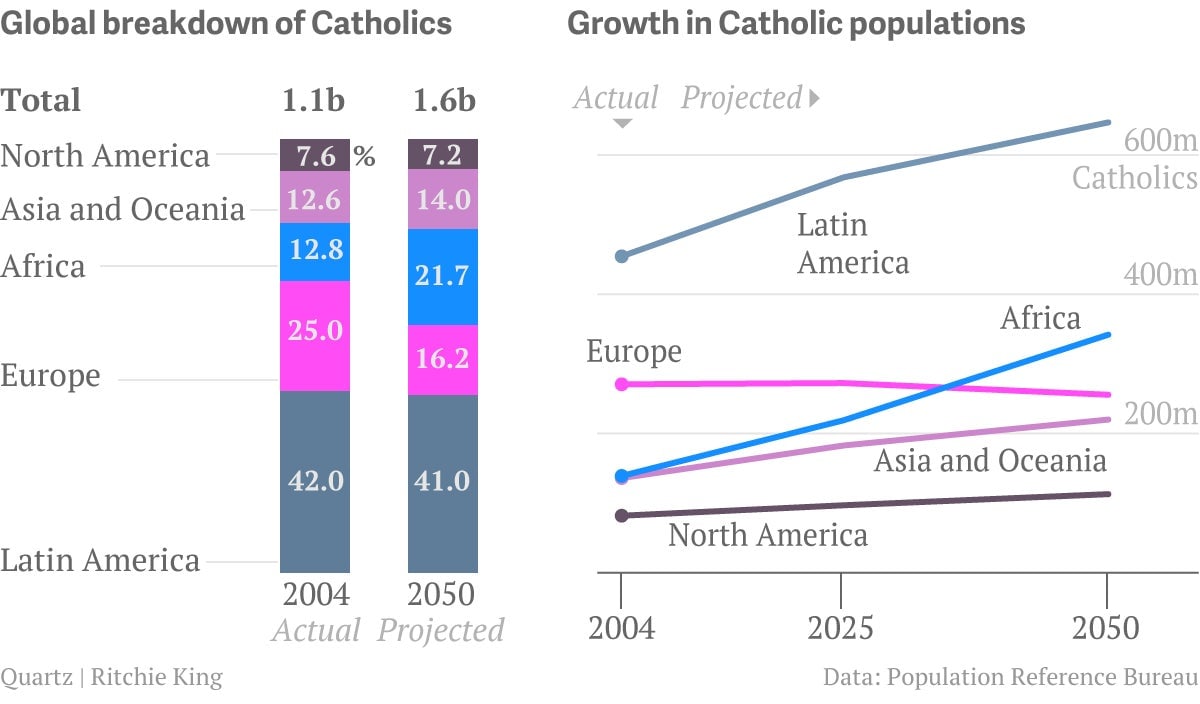How the Vatican is like Coca-Cola
How do you tailor your business for the advanced economies that made you a success and the emerging economies that will provide your future?

How do you tailor your business for the advanced economies that made you a success and the emerging economies that will provide your future?
When the cardinals select a new pope in the weeks to come, they’ll be weighing the various roles he’ll be called upon to play, but also the future of their organization in a changing world. The Catholic church has seen membership decline in Europe, and would in North America, too, but for immigration from Central and South America, where growth in both church membership and the broader population is strong, as it is in Africa and Asia. Yet there has never been a non-European pope, and the big question is whether the next one will hail from somewhere poorer.
Look at it this way: 75% of Catholics are outside of Europe, but there has never been a pope from outside the continent. Meanwhile, PepsiCo, which sells 47% of its product in emerging markets, has an Indian-born CEO. Indra Nooyi got the job because of her long experience as an executive at the company, but the importance of her national background and experience in global business was lost on no one. Meanwhile, Coca Cola chief executive Muhtar Kent is Turkish-American and got his start as the company’s Central Asia manager.
For the Catholic church, it’s not necessarily a question of theology. The cardinals picking the next pope were largely appointed by the previous two and are likely to pick from a list of like-minded conservative candidates, particularly since ex-Pope Benedict will have some influence on the process.
But there is a question of emphasis: On one hand, “charismatic” Catholics in countries like Brazil are among the fastest-growing groups, but are also a target of similarly-minded evangelical Protestant Christians seeking new converts. On the other hand, in advanced economies a growing proportion of people have no religious faith at all, while scandals and cover-ups have hurt the church’s reputation.
The question for the church is how to simultaneously address the needs of its growing population in emerging markets, where issues of poverty and AIDs are high on the agenda, while realizing that economic development will eventually create some of the same factors there—slower population growth, a more secular culture with a desire for transparent institutions—that are reducing the cultural appeal of the church in the West.
It’s not impossible for the church to appeal to both Europe and Africa; relaxing proscriptions on contraception, for instance, would—for different reasons—make sense in both regions. But change like that would require bold leadership indeed.